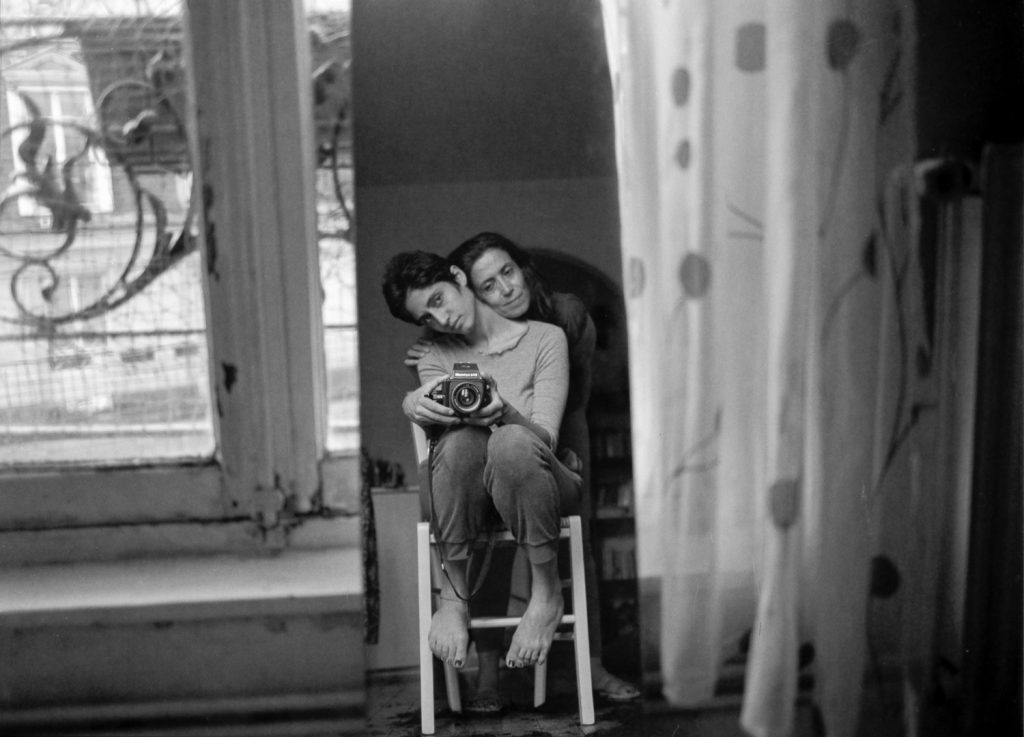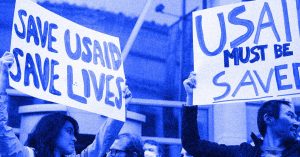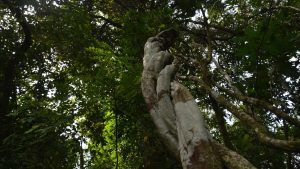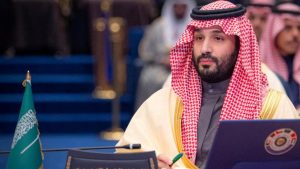“When I left Syria, I lost all of my images from my phone,” said Sara Kontar, a photographer and filmmaker, speaking to me last month from Paris, where she has lived since 2016. An architecture student who had abruptly dropped her studies, Kontar arrived in France from Damascus via Turkey when she was nineteen years old. “During the journey, I was in Turkey, and I spoke to my father,” Kontar said. “He had gone through something similar.” Decades earlier, Kontar’s father had left Syria and returned. He stressed to his daughter the need for her to document what was happening to her, and also what was happening to Syria as a whole. She did, but then all the pictures she had taken disappeared when the memory in her phone was erased.
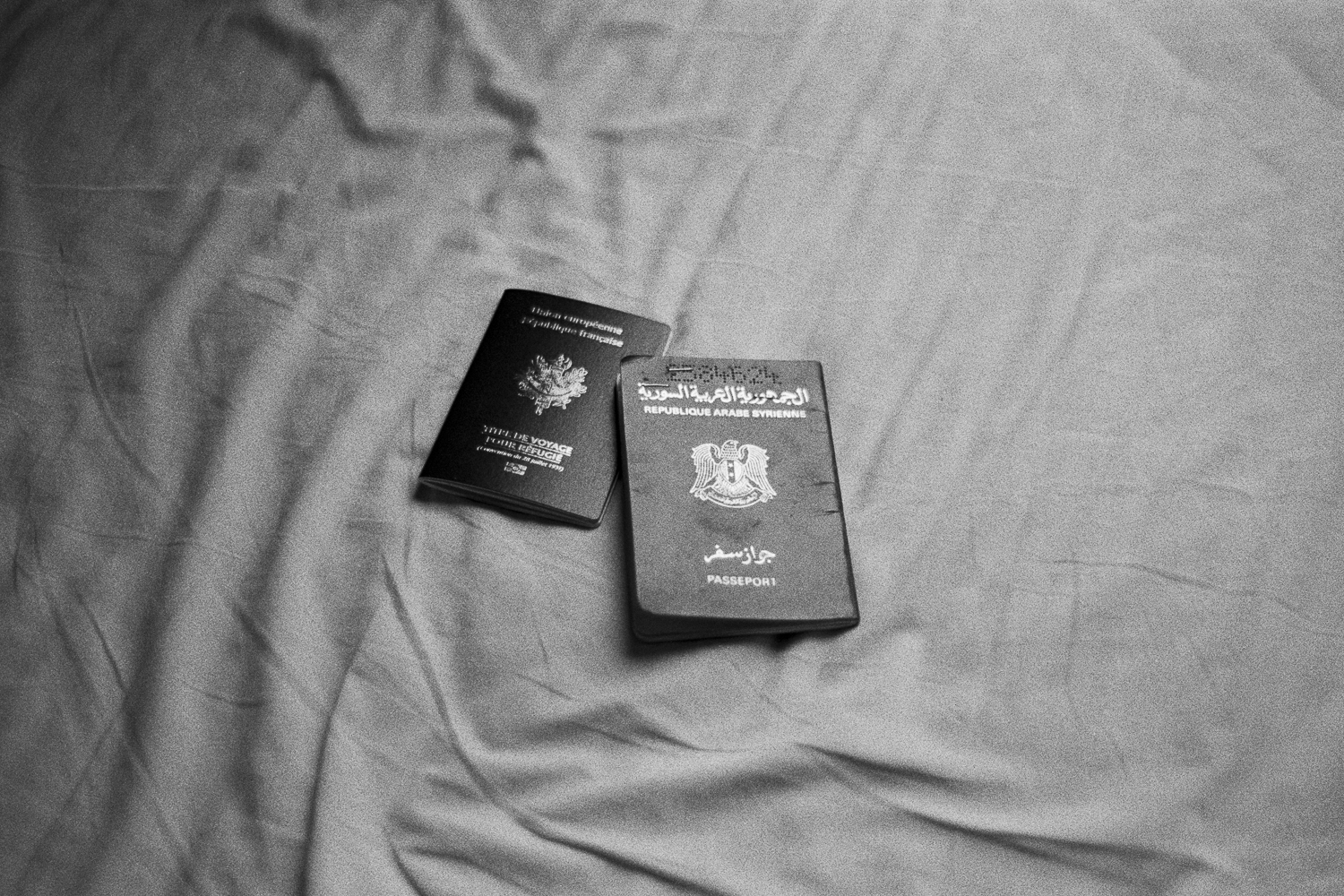
Sara Kontar, “Travel Document for refugees allow to enter all countries except: Syria.” As a refugee you had to give up your passport and replace it with a “Travel Document for Refugee,” from the series Therefore, I Cut (2023)

Sara Kontar, A view from our home in Paris, 2023
That journey had been hard, and in a way, Kontar was relieved not to have any visual reminders of it. But she remembered it, dreamed about it, and those images started to haunt her. It turned out that making new images, not casual snapshots with her phone but more planned-out photographs with a camera, helped ease her mind. “Since I was young, I wanted a camera, but it was really expensive, and I couldn’t afford it,” Kontar recalled. In Paris, she went to art school and studied animation. A classmate was selling her camera. “It was cheap, so I bought it,” Kontar said, adding with a laugh, “I didn’t choose photography. It chose me.”

Sara Kontar, “If you weren’t here I would have really felt exiled.” My mother and her two friends, from the series Therefore, I Cut (2023)
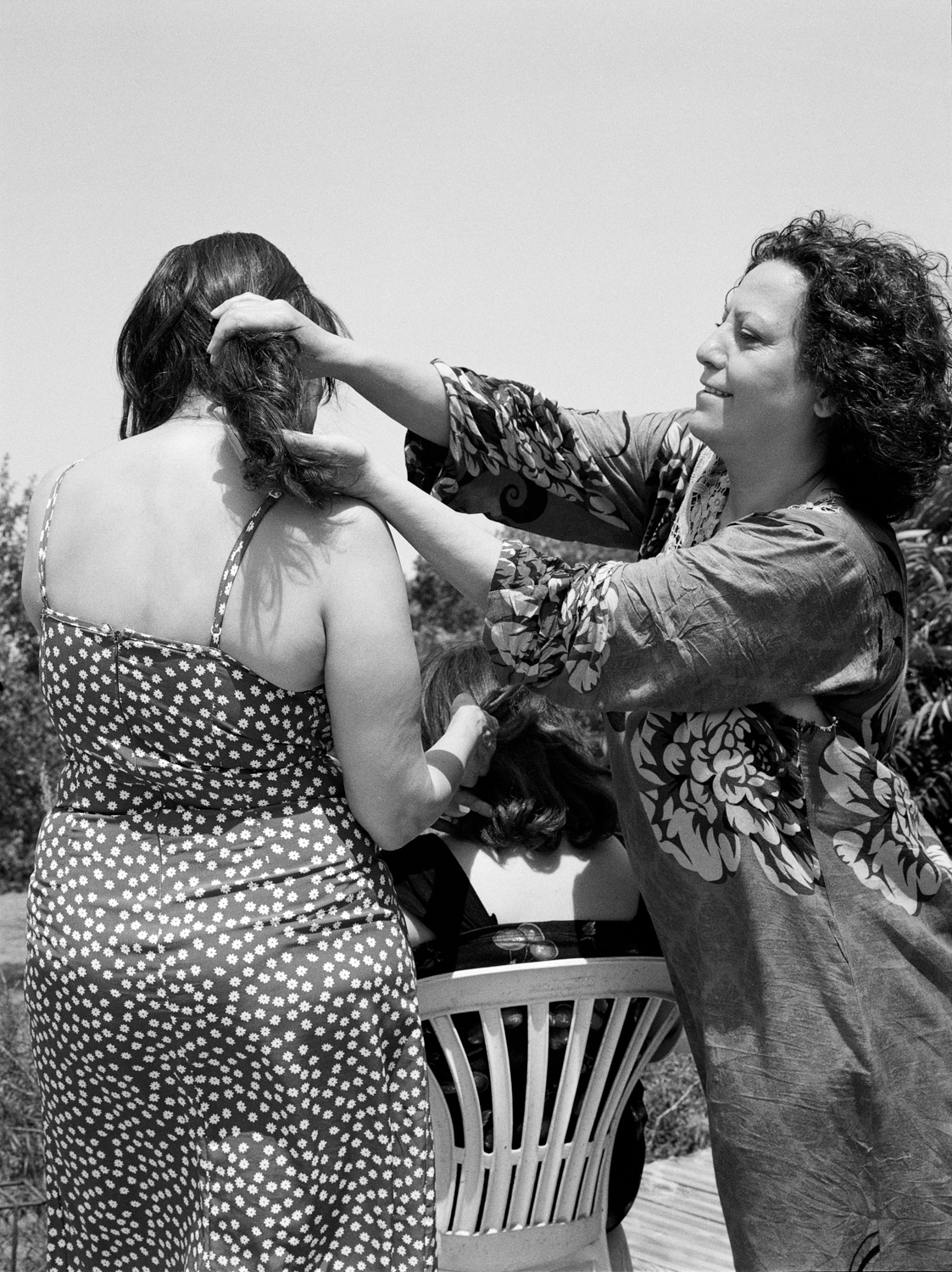
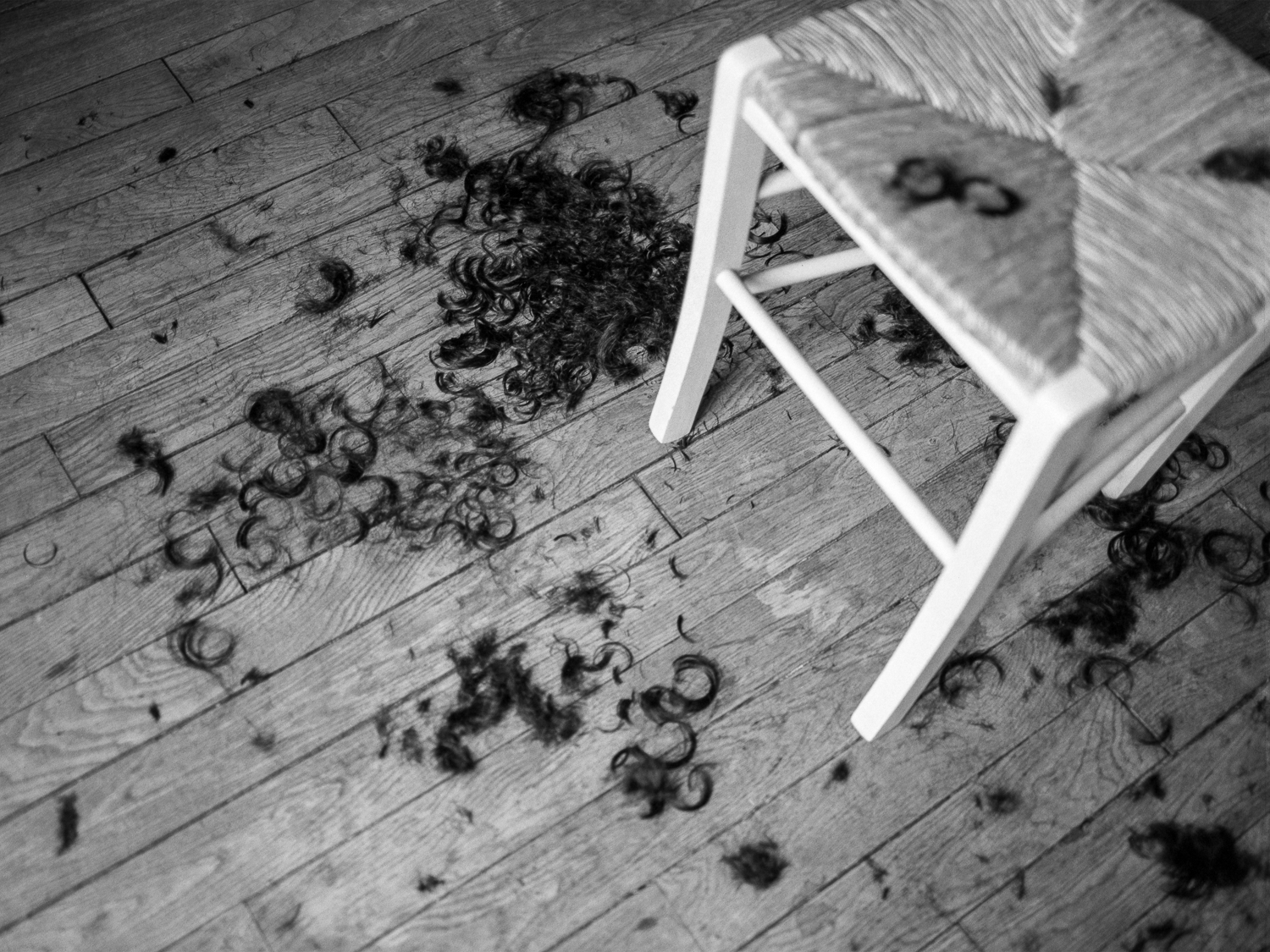
Sara Kontar, Someone told me that we carry memories of the past in our hair, so I asked my mother to cut it all, from the series Therefore, I Cut (2023)
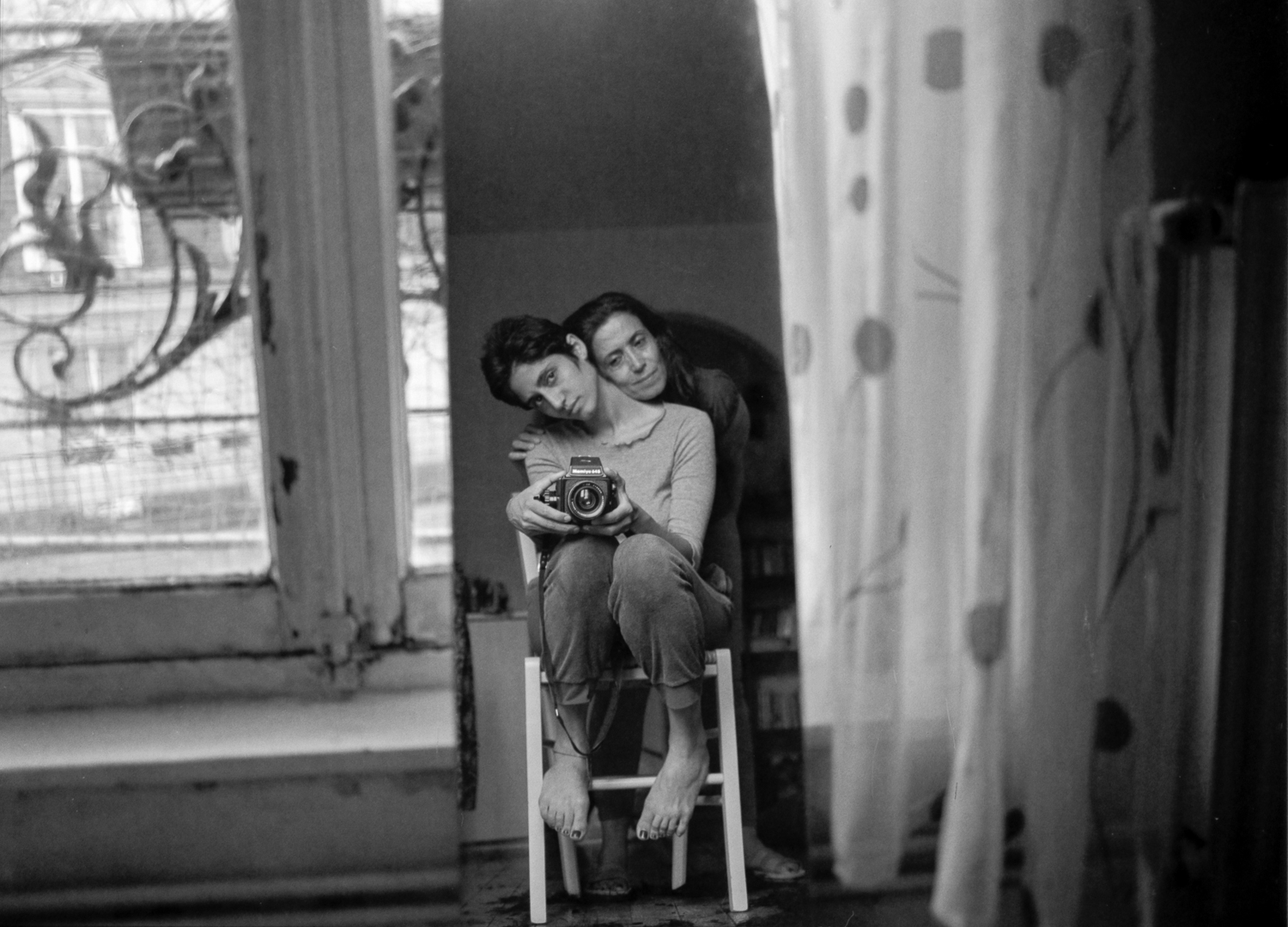
Sara Kontar, An auto-portrait with my mother after she cut my hair, from the series Therefore, I Cut (2023)
Kontar’s body of work—across several different series of archival collages, documentary photographs, and experimental films—returns again and again to the question of exile, not only as a metaphorical space, or a set of lived experiences, but also as an adversary, as a tangled ball of bureaucratic red tape. Therefore, I Cut (2023) is both a collection of portraits and still lifes—hands holding a pair of scissors, two passports on a bed—and an unfolding narrative about a group of women who find everyday trust in each other. Them Syrians (2024–ongoing) chronicles the tangled relations between Lebanon and Syria as they play out among the old stones and historical scars of a mountain village.
In Syria, the regime of Bashar al-Assad, like that of his father before him, was explicitly built to fend off coups. The prison system, the many layers of intelligence services, the brutal structures of an authoritarian state were all constructed to absorb, co-opt, diminish, and defeat any effort to overthrow the government. When protests swept across the Arab world fourteen years ago, unleashing all kinds of hopes and dreams for a better future, Syria was the rocky shore on which those aspirations crashed, deformed themselves, and died.
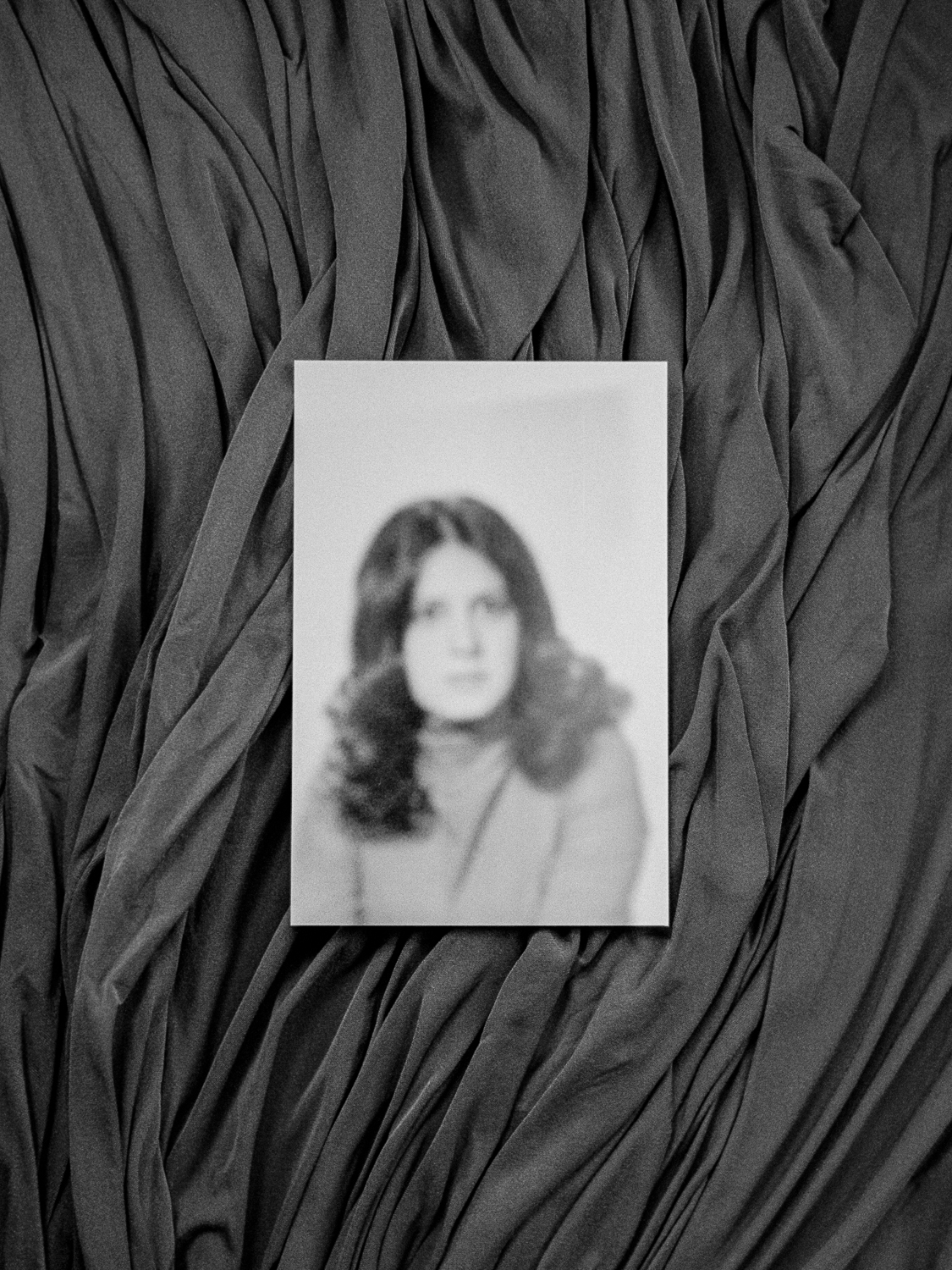
Sara Kontar, The blurry portrait of Majeda, from the series Therefore, I Cut (2023)
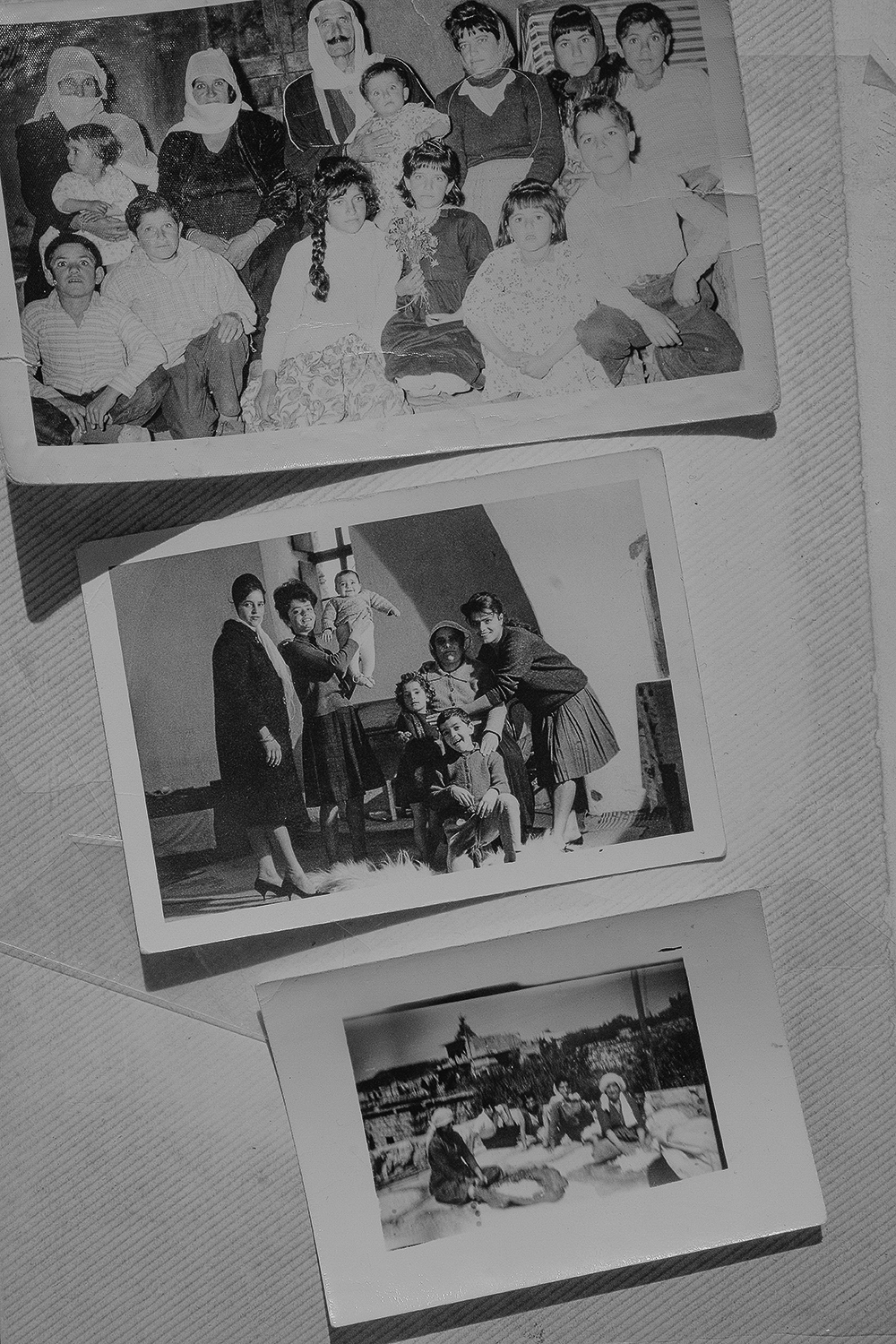
Sara Kontar, Family archive, from the series Paper Home (2024–ongoing)
Assad survived and seemed immoveable. When a coalition of rebel factions suddenly stormed the capital last year, and Assad just as suddenly fled Damascus for Moscow, it was a shock. For the fourteen million Syrians who had been displaced from their homes between 2011 and 2024, half of whom had left the country altogether, it was a shock complicated by laws and statutes that were blind to this dramatic change in circumstances. For the 46,000 Syrians granted asylum in France, returning home would mean voiding their refugee status. That means they are forbidden from going back to Syria, even for a short visit, unless they are willing to leave France forever, or if they are willing to become French citizens first. That is the predicament Kontar is exploring, to powerful and ruminative effect, in the series Paper Home (2024–ongoing), where bureaucratic hurdles stand in the way of real justice and equality.
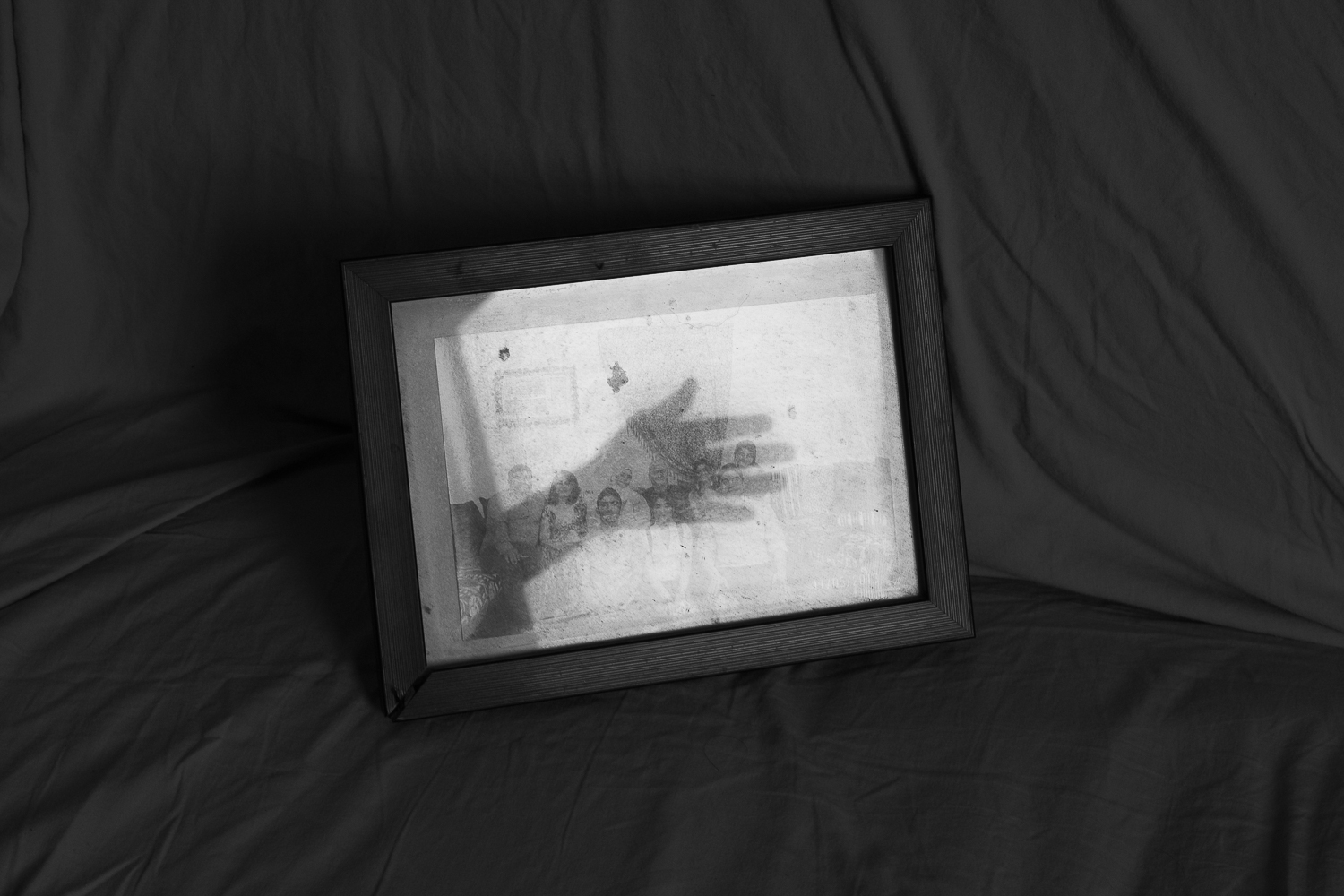
Sara Kontar, A family picture captures the essence of unity despite physical distance. Members are scattered across the globe, with some in Germany, France, Saudi Arabia, Syria, and Kurdistan, from the series Paper Home (2024–ongoing)
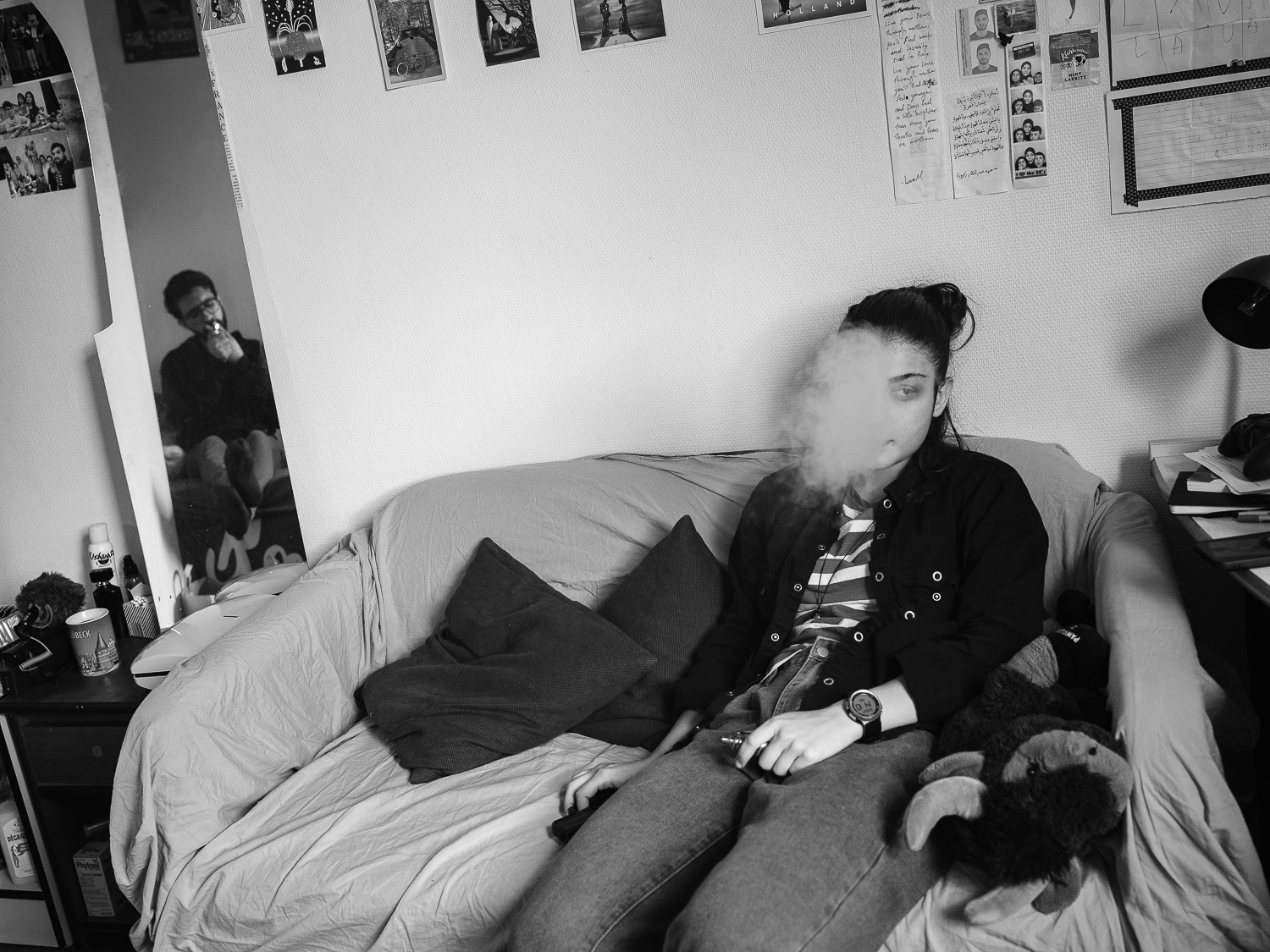
Sara Kontar, Lava and Kais find themselves in the cramped confines of the 14 cubic meters student room, from the series Paper Home (2024–ongoing)
Four years after arriving in Paris, Kontar suddenly recovered all the images she had lost. By that point she was experimenting with different materials and modes of image-making. She printed the previously missing images as grainy cyanotypes. For the installation Towards a Light (2022), she arranged them over column of texts and wallpaper replicating an image of the sea. Although the texts tell of a harrowing passage—trying to reach Greece by boat, fighting with smugglers—the images that so troubled Kontar for years appear tender, almost beautiful. “After that, I started documenting the lives of people around me,” Kontar explained. “Everybody’s lost.” People are living in welfare associations, with roommates, far outside their norms. “But when they come together as a group, I love this atmosphere. What I love about documentary is that when you live through these hard stories, the camera becomes a third eye, to look [with] and also to appreciate. It’s another relationship with a space, with exile. All photographers are outsiders. But this is my way out.”
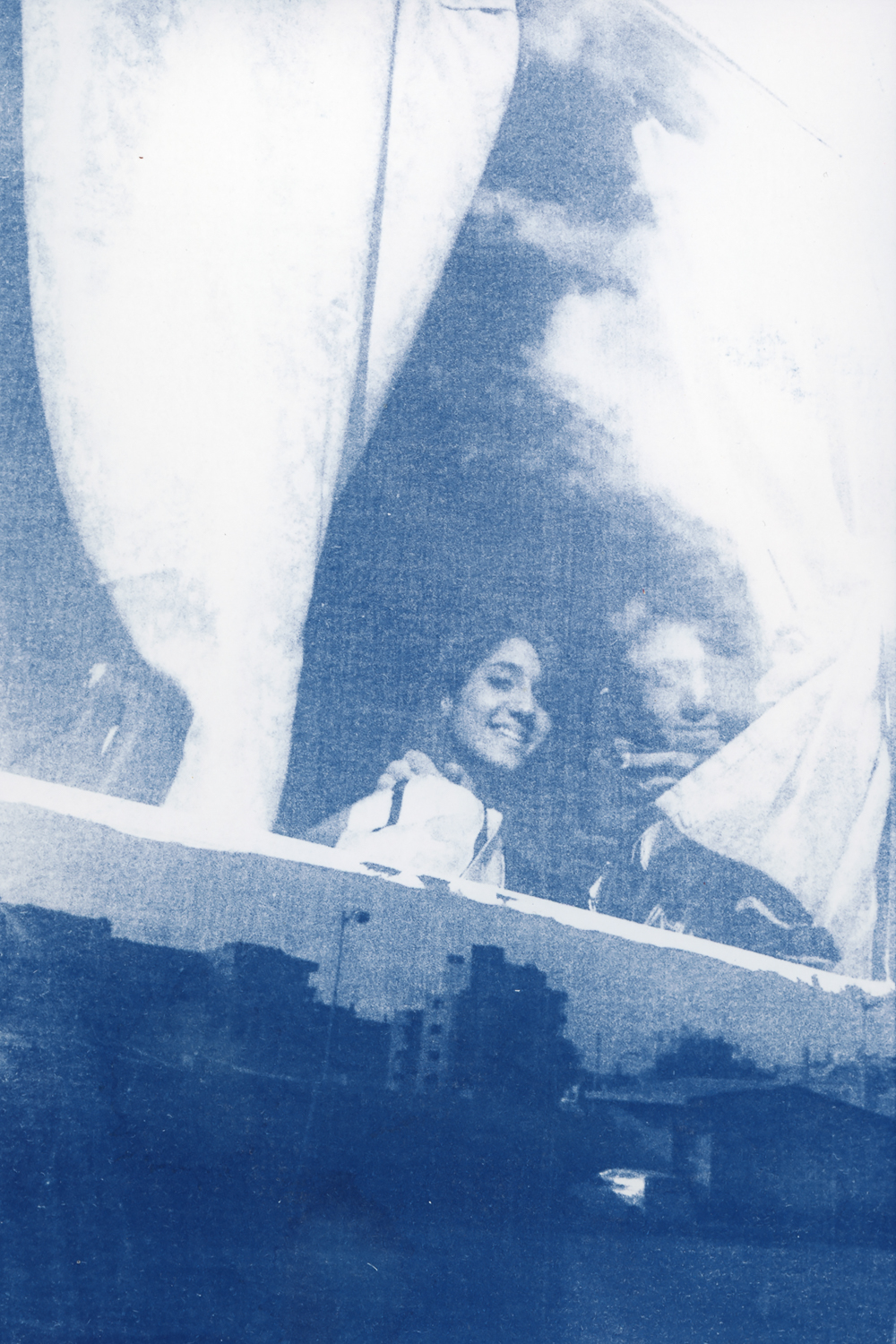
Sara Kontar, Last image of my brother and me, taken by our father in Syria in 2015 on a bus, with the city’s reflection in the window, from the series Towards a Light (2022)
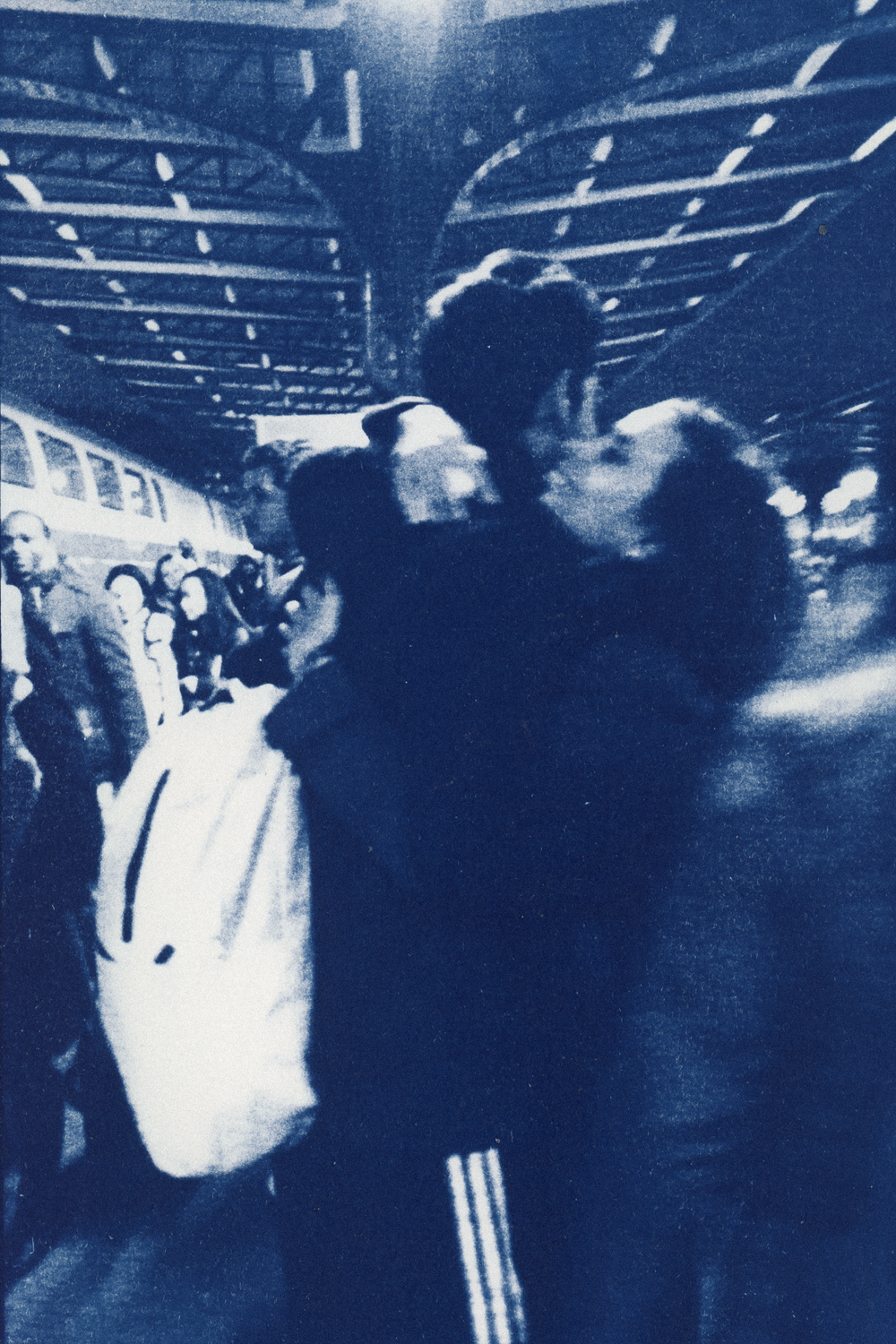
Sara Kontar, An image of my mother embracing my brother upon our arrival in Paris in early 2016, after a two-month journey seeking asylum and crossing multiple borders. My mother had been in France for six months prior, from the series Towards a Light (2022)
Read more from our series “Introducing,” which highlights exciting new voices in photography.



